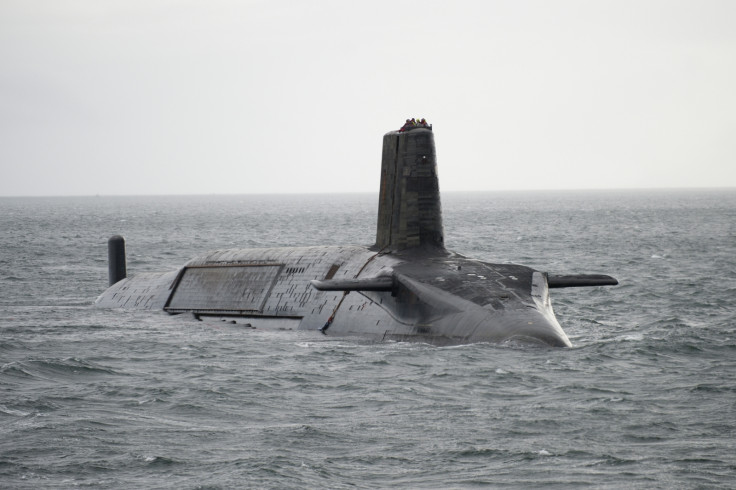Nuclear weapons are an archaic idea of a 'deterrent'
'Security' appears synonymous with a willingness to kill millions at the press of a button
Anyone who has accepted nuclear weapons as an everyday part of civilisation, like the car or the internet, ought to read and reread the following paragraph from a book by the Pulitzer Prize-winning American journalist John Hersey. From Hersey's book Hiroshima, it is based on an interview with a survivor of the atomic bomb the US dropped on Japan on the morning on 6 August 1945:
"Mr Tanimoto [one of the survivors] found about 20 men and women in the sandpit. He drove the boat on to the bank and urged them to get aboard. They did not move and he realised that they were too weak to lift themselves. He reached down and took a woman by the hands, but her skin slipped off in huge, glove-like pieces. He was so sickened by this that he had to sit down for a moment. Then he got out into the water and, though a small man, lifted several of the men and women, who were naked, into his boat. Their backs and breasts were clammy, and he remembered uneasily what the great burns he had seen during the day had been like: yellow at first, then red and swollen, with the skin sloughed off, and finally, in the evening, suppurated and smelly... He had to keep consciously repeating to himself, 'These are human beings'."
Were Britain ever to use nuclear weapons, we would presumably have to invert the words of Mr Tanimoto, and persuade ourselves that the people on whose heads we were dropping the bomb were not really human beings. "Security", in the political lexicon, is synonymous with a willingness to blow several million people to pieces at the single press of a button.
Although she won't put it like this, that is essentially what Prime Minister Theresa May will argue today when the renewal of Trident is debated in the Commons. "We cannot compromise on our national security," May will likely say. "We cannot outsource the grave responsibility we shoulder for keeping our people safe."
Yet aside from the bigger moral question, confronting the threats of today with nuclear weapons is as archaic as it would have been to fight German tanks with muskets 70-odd years ago. There is little evidence that Trident "deters" anybody – not rogue states and not "lone-wolf" terrorists.

Britain was a nuclear-armed power when Egypt nationalised the Suez Canal and it was a nuclear-armed power when General Galtieri invaded the Falklands. The possession of a vast arsenal that could instantly wipe out several million human beings did little to dissuade these tyrants from their aggressive course of action, for the obvious reason that we could never morally justify using nuclear weapons against the people who live in the countries they ruled. And besides, we could not have done so without the authorisation of the US, making the ubiquitous term "independent nuclear deterrent" a misleading one.
Having nuclear weapons is ultimately likely to encourage other states to pursue their own nuclear capabilities. When a person questions why Iran is not allowed to develop nuclear weapons when Britain has them, it may be a slightly disingenuous point – Britain is a democracy while Iran is a theocracy that represses women and executes gay people – but it does contain an important truth. You cannot preach non-proliferation, nor expect it, while simultaneously building up your own lethal nuclear arsenal.
Why make the foolish assumption that malevolent states won't also see nuclear weapons as a virility symbol and a ticket to prestige and influence? Why do civilised nations like Germany and Spain manage perfectly well without them? And why is it better to spend such vast sums of money (thought to be in excess of £200bn, $265bn) on Trident rather than on the conventional armed forces?
It is possible to recognise all of this without adopting the naive pacifist/isolationist position which says that the demagogues of the world will turn into angels as soon as Britain retreats into its shell. There are (and probably always will be) pathological movements that wish to do Britain harm based on a fundamental rejection a free and democratic society.
The point is that Trident is an inflexible weapon that is useless against today's threats. It isn't only the Campaign for Nuclear Disarmament and the usual communist newspaper sellers who see the futility of Britain's billion-pound nuclear arsenal. A recent letter to The Times signed by a group of senior military officers described nuclear weapons as "completely useless as a deterrent to the threats and scale of violence we currently face or are likely to face, particularly international terrorism".
The fact that the idea of a nuclear-free world sounds hopelessly romantic today is proof not of how rational it is to possess nuclear arms, but of how politicians are almost universally unable to grasp the challenges of the 21 century without clinging desperately to the certainties of the past. It is ironic, then, that the politician most often accused of being marooned in the 1970s seems to grasp the uselessness of nuclear weapons better than most. Jeremy Corbyn is right: they are better things to spend hundreds of billions of pounds on than Trident.
James Bloodworth is former editor of Left Foot Forward, one of the UK's top political blogs, and the author of The Myth of Meritocracy.
© Copyright IBTimes 2025. All rights reserved.






















